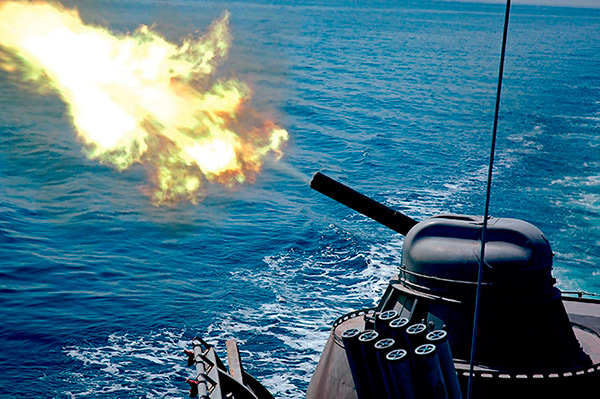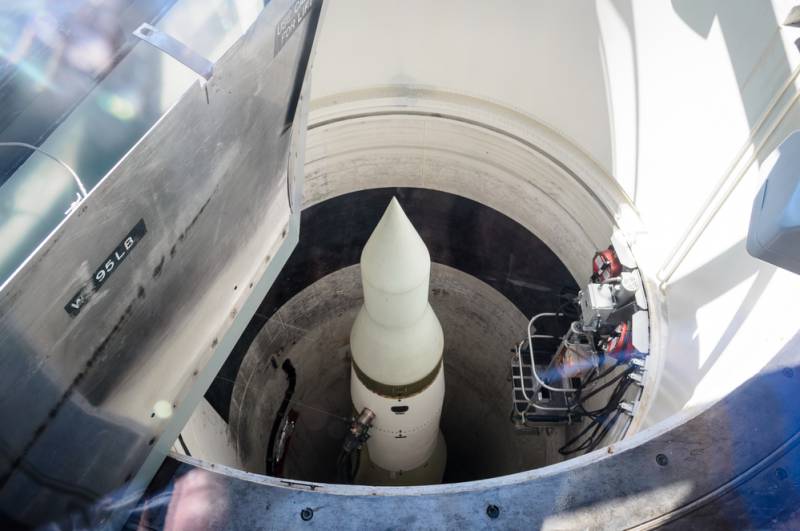
The dynamics of the development of Russian-Chinese relations in the era of President Putin is well known and legally based on the Treaty of Good Neighborliness, friendship and cooperation, who recently turned 21 year. But what preceded the signing of this document, which in China is called the treaty of the century, and what are the specifics of relations between the two countries?
they say, Chinese are slow, unfussy, preferring to wait, meditate in silence. Can, so, but definitely not when it comes to Russia. Two days after Gorbachev's resignation, a Chinese delegation arrived in Moscow, to confirm agreements and principles, set out in earlier communiqués, and make sure, that all treaties and diplomatic documents of the USSR and the PRC remain in force.
A year later, at the invitation of the Chinese side, Yeltsin visits Beijing to sign a declaration on the foundations of relations between Russia and China as friendly states.. The Chinese were happy, because there were concerns, that relations between the two countries will deteriorate again, but not because of ideological differences, and under US pressure.
After a year and a half, in September 1994 city, Jiang Zemin is already visiting Russia to sign a declaration, in which relations between countries are called constructive partnership. Six months later, the Chinese President takes part in the celebration of the 50th anniversary of the Victory along with Clinton and Major.
AT 1996 g. Yeltsin again in China signs another declaration, which specifies, that between Russia and China is not just some kind of partnership, a "equal trust partnership, aimed at strategic interaction".
Exactly one year later, Jiang Zemin travels to Russia again to sign a declaration with a big name, beyond the scope of relations between the two countries: "On a multipolar world and the formation of a new international order". true, it does not say anything specific about the new international order, but the processes of "the formation of a multipolar world order" are already being noted.
Six months later, In November 1997 city, Yeltsin again in Beijing with a huge government delegation agrees with the Chinese on the completion of demarcation work on the border. Upon arrival in Moscow in December 1997 g. The President of Russia approves the concept of national security of the Russian Federation, which says, what "Russia will contribute to the formation of the ideology of the formation of a multipolar world", a “attempts to create a structure of international relations, based on dominance in the international community of developed Western countries under the leadership of the United States and calculated on unilateral, primarily military, solving key problems of world politics bypassing the fundamental norms of international law”, condemned.
Again, exactly one year later, Jiang Zemin visits Moscow and, despite the fact that Yeltsin was in the hospital, they hold a 40-minute meeting and issue a "Joint Information Communiqué on the informal meeting". by the way, at that time, rumors were actively circulated in the Western press, that Jiang is going to Yeltsin, to form a new anti-Western coalition. However, in reality, China promised Russia humanitarian aid. (meat and rice), continuing to discuss border issues.
At the end 1999 city, i.e. one year later, despite doctors' advice, Yeltsin, at the very end of his career, flew to China, where he made an unexpected statement for many:
«Russia has a full arsenal of nuclear weapons. Clinton forgot about it, so I decided to flex my muscles, as they say. I want to tell Clinton through you: don't let him forget, what world does he live in. Wasn't and won't be, so that he alone dictates to the whole world, how to live and. d. A multipolar world is the basis of everything. That is so, how we agreed with Chinese President Jiang Zemin, we will dictate to the world how to live, not he alone».
true, the next day, Yeltsin's press secretary and the commander-in-chief of the Strategic Missile Forces reassured the Western partners - Russia did not announce a break in relations, and plans to use nuclear weapons only for defense, "zero mission" is not canceled. And even Prime Minister Putin said, what "Russia has very good relations with the United States and the leadership of this country… it is absolutely wrong to build the information field in this way, that there is a cooling of Russian-American relations».
He became the president, Vladimir Vladimirovich did not change the high pace of contacts at the highest level with his Chinese colleagues and three months after taking office he visited the Celestial Empire. During the visit, a declaration was signed, the essence of which was, that the new government in Russia continues its course towards rapprochement with China. The document notes, that the development of a Russian-Chinese treaty on good neighborliness began, friendship and cooperation.
Exactly one year later, in July 2001 city, Jiang Zemin once again visited Russia to sign the treaty. The treaty itself did not contain any breakthrough clauses., legally fixing it, what was said in numerous declarations.
A brief chronology of contacts at the highest level shows the rapid development of Russian-Chinese relations - from confirming the course of the former government to "strategic partnership". One can also see the extreme perseverance of the Chinese side and the desire to endlessly sign papers, confirming friendly relations. Jiang Zemin didn't just visit Russia frequently, but also traveled through many cities, often spoke in Russian and generally positioned himself in every possible way as a friend of our people. Moreover, behind all these numerous declarations and communiqués of the 1990s. cooperation in economic, scientific, technical and political spheres were not at such a high level. Therefore, the pressure of the Chinese looked a little strange.
The West saw in the behavior of the PRC attempts to form an anti-Western coalition. Some of us counted, that China seeks to quickly solve the problem of borders, others - that this is a kind of attempt to lure Russia into the orbit of their influence. There were numerous rumors and speculation, that the Chinese intend to capture the Far East, etc.. P.
If you carefully read the Chinese sources, then the diplomatic pressure of the PRC can be understood.
At first, "northern direction" after the break of the CPC with the CPSU became strategic. A long border with a hostile world power greatly drained the young Republic of China., therefore, after the beginning of perestroika and then the collapse of the USSR, the Chinese set out to implement the principle of “renunciation of hostility at all times” at all costs. An invariable condition of almost all declarations, and then the treaty itself was the demilitarization of the border areas. Besides, it is difficult to imagine a sadder picture for China, than NATO bases in the Russian Far East. Therefore, in this sense, the Chinese from the very beginning tried to strengthen relations with Russia as opposed to the United States., promoting the ideology of a multipolar world.
Secondly, the new Russia has become a real godsend for China in terms of implementing the concept of the CPC to build a new type of relations between countries. Russia abandoned the Soviet legacy, that is, ideological differences are a thing of the past; Russia quite gently resolved all territorial disputes; Russia has become an example of another "pole" of the multipolar world, with which constructive interaction has replaced the traditional conflict and competitiveness. Generally speaking, without the current level of relations between the Russian Federation and China, the concept of a multipolar world order would remain extremely speculative.
The Chinese are proud, that they managed to form a "model of interstate relations of a new type" with Russia and put into practice the theory of "diplomacy with Chinese characteristics". Russian-Chinese relations are a flagship example of the manifestation of multipolarity, since the Russian Federation is a big and powerful power, who managed to get along, despite historical contradictions, different ideology, political and social structure. “Russia is interested in a stable and prosperous China, and China is interested in a strong and successful Russia”.
The relationship formula is expressed in four points:
1. Equality and respect, based on a pragmatic approach and overcoming differences in ideology and social structure.
2. Constant dialogue and consultations, guaranteeing the "smoothness" of relations.
3. Supporting each other's sovereignty and maintaining national unity.
4. Rejection of military alliances, arms race, directed against third countries and the creation of a demilitarized security system.
China tried to implement something similar with the leading EU countries, and with the EU itself as a whole, but, of course, unsuccessfully. The Chinese tried to promote similar relations at one time even with the United States.
If we look for the deep theoretical roots of this approach, the CCP believes, which develops and puts into practice Lenin's theory of "the peaceful coexistence of two systems" and Stalin's theory of building constructive and peaceful relations with ideological opponents. After the Second World War, the USSR tried with all its might to prevent the growth of tension between the allies, hoping to prevent a new war. That's what the UN was created for.. All the typical liberal accusations of the USSR in self-isolation, iron curtain and the like are untenable and false, it was the West that tried with all its might to isolate itself from the USSR and unleashed a cold war. And the position of the USSR then, and the position of the PRC today are, to ensure the longest possible peaceful economic development. It is dictated by self-confidence, in the advantage of its social system over the Western.
So the “model of interstate relations of a new type” is not so new., but in the past it manifested itself in very brief periods, episodically.
Configuration of Russian-Chinese relations, secured by a treaty of good neighborliness, friendship and cooperation, is one of the few examples, when an international legal act really reflects real political processes. However, the rapprochement between the two countries did not happen immediately after the signing of the document., it took years of deterioration in relations between Russia and the West, growth of sovereignty and national consciousness. In many ways, it was the West, with its aggressive policy, that pushed the Russian Federation to close cooperation with China.. can say, that the Chinese have shown strategic thinking, considering the inevitable growth of the sovereignty of the Russian Federation, can you say, that they were just lucky with the prudent Putin and the ingenuous politicians of the West.
Moreover, Russian-Chinese relations cannot be considered allied, China is ready to be friends only without obligations, not to be drawn into conflicts. the only country, which China pledges to assist in the event of an attack, is North Korea, which is the key to an unstable, but peace on the Korean peninsula. In all other cases, the Chinese will act as observers supporting one side or the other., as, in fact, is now happening with the Ukrainian conflict. The same can be said about Russia, which definitely does not want to be drawn into a possible conflict between China and the United States. So it's wrong to say, that Russian-Chinese relations are the implementation of the principle “against whom we will be friends?».
Hard to rate, How stable and viable is this model of relations in the historical perspective?, how much it depends on the pressure of external forces, but it is definitely politically man-made and directly depends on the course chosen by the governments. It seems to many, that all interstate relations are shaped by the political will of the country's leaderships, but this is far from the case. In most cases, relations reflect the ratio of the economic and political potentials of the powers, based on competition and suppression of sovereignty.
There is no romance in relation to Russia and China, therefore, before us is not an age-old brotherhood, and the pragmatic community of neighbors.
Anatoly Shirokoborodov,











